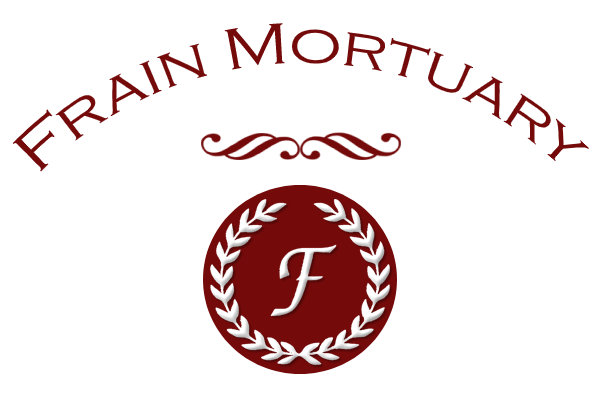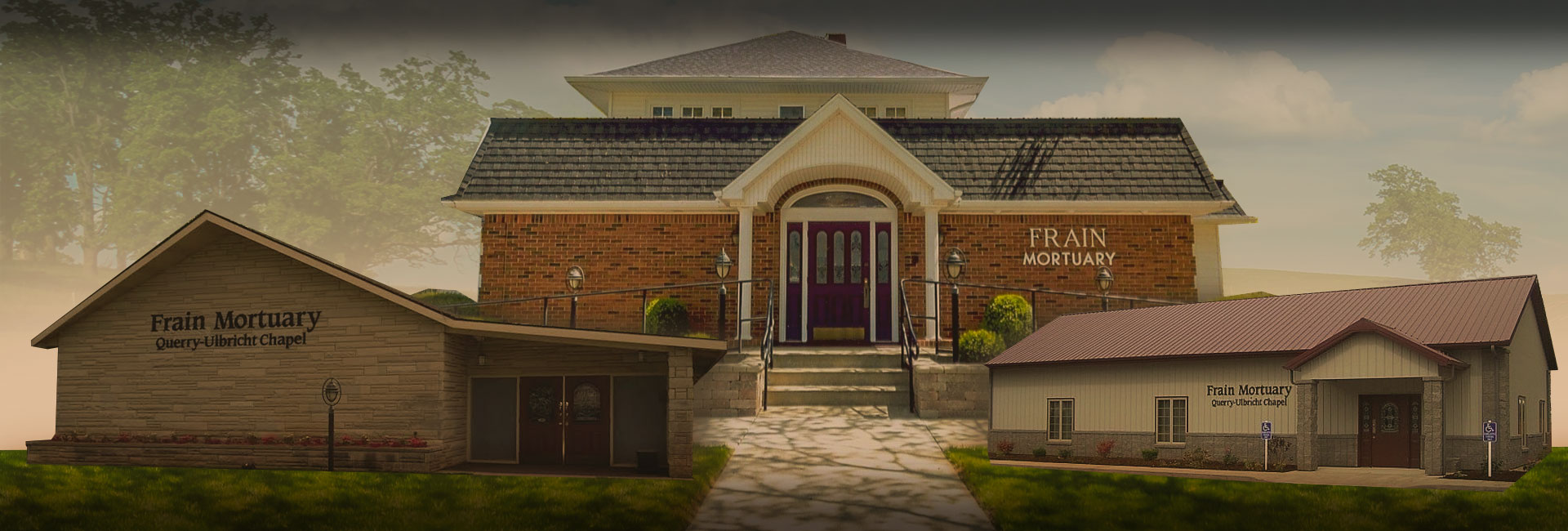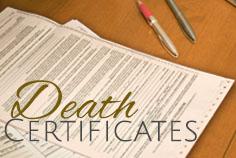
Welcome To Frain Mortuary

Frequently Asked Questions
What is a funeral?
A funeral is a ceremony for a deceased person prior to burial or cremation. A funeral gives the opportunity for family and friends of the deceased to gather and mourn the passing of their loved one, to share cherished memories and celebrate their life. A funeral is a vital first step to help the bereaved heal after the loss of someone special.
What type of service should I have?
If no pre-arrangements have been made, the type of service is entirely up to you. Services are usually held at a funeral home or a place of worship. There is a wealth of different services, ranging from a traditional religious or military service to something a little more non-traditional. Our funeral directors are more than happy to work with you to figure out what would be the most appropriate.
Can I personalize a funeral?
Of course you can, in fact more and more people are opting for a more non-traditional personalized service. There is no right or wrong way to celebrate somebody’s life. There are many unique ways to celebrate life, let the funeral director know exactly what your desires are and they will honor your wishes.
Do we need to have an obituary notice and what is included in one?
It is highly recommended to have an obituary notice that’s either placed in a local newspaper, or placed online. An obituary lets the public know that a death has occurred, and gives them information about the service. Obituaries generally include the deceased’s full name, age, city and date of birth and the city they were living in when they died. It also includes the name of the deceased’s spouse, along with the names of anyone else significant in their lives, such as parents, children or grandchildren. Space may be limited in a newspaper obituary, but you may include a little blurb on the life and legacy of the deceased. An online obituary or memorial website offers you the chance to add a lot more about the deceased.
Who are funeral directors and what do they do?
Funeral directors are in charge of all the logistics following a death. They complete all the necessary paperwork, make arrangements for the transportation of the body, and put into action the choices made by the family in regards to the funeral service and the final resting place of the body. Beyond the logistics, funeral directors are there to provide moral support and guidance for someone coping with death.
What happens if the death occurs in the middle of the night or on the weekend?
We are here to help, funeral directors are available 24 hours a day, 7 days a week, and 365 days a year.
What if a death occurs away from my home town?
We are here to help, we can arrange to have the remains transported home from anywhere in the world. We will assume responsibility and make the proper arrangements to have the remains return to the community.
What is embalming and what purpose does it serve?
Embalming sanitizes and preserves the body; it also slows down the decomposition process and enhances the appearance of the body damaged by traumatic death or illness. Embalming gives time to the family of the deceased to arrange a service, and allows the family the option of having an open-casket viewing.
Do I need to have an embalming?
No. In fact some religions forbid embalming. However, some countries require embalming by law in order for remains to leave or enter the country. If it is not against your religious custom, embalming is recommended, especially if there is an extended gap between death and burial or cremation.
How much does a funeral cost?
The cost of the funeral varies depending on the wishes you have. The average cost of a funeral is between $5,000-$7,000, however, the most basic of services can cost as little as $1000. The cost includes all professional services including transportation, embalming and other preparations, the use of a facility for the ceremony, and the purchase of a casket or urn.
Why are funerals so expensive?
Funerals are labor intensive and require a lot of work from a lot of people. The cost of a funeral goes beyond merchandise such as caskets, it includes the services of a funeral director in making the necessary arrangements, filling out forms, and dealing with all the other people involved in the death (doctors, lawyers, insurance companies). Funeral directors work an average of 40 hours per funeral. The cost of operating a funeral home is factored into the cost as well. Funeral homes are a 24 hour operation, with extensive facilities that need to be maintained and secured.
What do I do if I am not satisfied with the way a funeral was handled?
Funeral Services in the United States is regulated by the Federal Trade Commission, they can be reached by telephone at 1-877-FTC-HELP (382-4357) or you can fill out a form online at www.ftc.gov. In Canada, funeral services are regulated provincially and this information can be found on the Canadian Consumer Information website at www.consumerinformation.ca

After Death Requirements
After a death, there are many legal details to hammer out. While it is not necessary to get a lawyer, it is strongly recommended. A lawyer will make sure all the ‘t’s are crossed and i’s are dotted”. The time following a death of a loved one is extremely emotional, and even the closest family will have disagreements over the most trivial matters. To make sure there is still peace in the family, it is a good idea to let a lawyer figure things out.
Before getting in touch with a lawyer there are several important documents that you need to gather. Those include:
- Wills
- Deeds
- Bank Statements
- Insurance Policies
- Vehicle and Boat titles
- Tax Documents
Bank Accounts
What is to be done with bank accounts after a death varies regionally. In some regions, bank accounts are automatically frozen after a death. To avoid any complications, the bank should be notified immediately, and you should find out the procedures for releasing these funds, and how to set up a new account for funds received after the death. See More.


Wills
Everyone knows they should have a will, but the vast majority – about 70% of us – do not. Writing a will is easy and inexpensive, and once you are done you can rest easy knowing your hard earned money and property will be distributed according to your wishes. See More

Probate
Probate is the legal process that transfers the legal title of property from the estate of the deceased to their beneficiaries. See More

Executors
An executor is the personal representative of your estate. They are the person in charge of taking control of your assets, paying off any debts, and distributing assets to your beneficiaries per the terms and conditions of your will. See More











